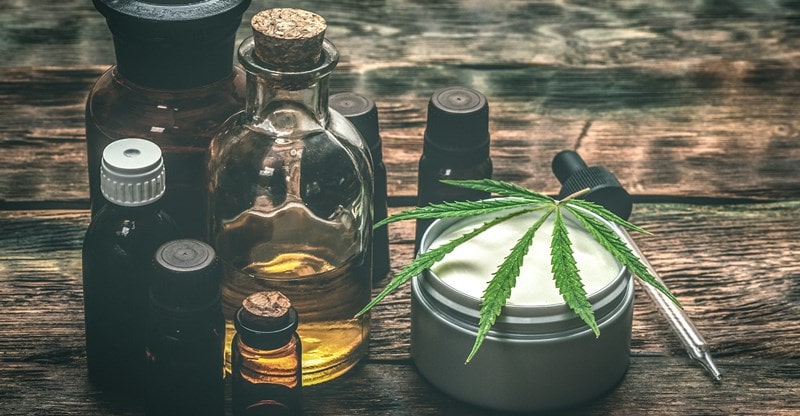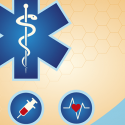6 Things You Should Know About CBD
CBD is a household name in the health industry, but contrary to popular opinion, it isn’t buzzing stuff. Given its ongoing widespread acceptance legally, as well as its highly impacting health benefits, there’s no doubt that CBD is here to stay. Even more reassuring is that more research is ongoing about CBD now more than ever before.
This means that most of its health benefits would become medically and research-proven in the nearest future. There’s so much to know about CBD if you’d like to incorporate CBD products into your diet or medication regimen, and you can start here. Here are six essential things you should know about CBD:
1. What Is CBD?
CBD is short for cannabidiol. It’s one of the 113 known compounds found in the cannabis plant (marijuana or hemp). Other well-known compounds found in cannabis are delta-9-tetrahydrocannabinol (THC) and cannabinol (CBN).
Legal CBD is extracted from the hemp plant and used in making CBD products like CBD tinctures, edibles, topicals, isolates, etc. Visit here to search for more CBD terms and definitions.
2. Can CBD Get You Intoxicated?
Most people think that since CBD is extracted from cannabis, it can get you high or intoxicated. This isn’t true. Unlike its counterpart, THC, which is also found in the cannabis plant, CBD isn’t psychoactive.
This means that CBD alone can’t intoxicate you. However, if more than the ideal percentage of THC (0.03%) finds its way into your CBD product, you might feel a bit high. This is why you should only buy quality-assured CBD products that you can be certain is safe for use.
3. Is CBD Legal?
The issues concerning the legality of CBD is still a grey area. Since it isn’t intoxicative like its counterpart, THC, it was legalized at the federal level. Some conditions are attached, though. For legality’s sake, CBD has to be extracted solely from the hemp plant and not marijuana.
This is because marijuana contains more percentage of THC compared to hemp (hemp is now legally grown under federal laws). In addition, the CBD product must contain no more than 0.3% of THC.
But even though CBD has been approved at the federal level, not all states have legalized it. However, it’s said that before long, CBD would become legalized in most, if not all, states. Currently, most states have partially legalized CBD products in that you can purchase them for medicinal purposes.
4. Is CBD Medically Recommended?
Just like its legality, medical recommendations concerning CBD also remains a grey area. Some health professionals recommend it as a complementary treatment, while others are still on the fence about it.
This is because CBD-related research needs to go further than where it is at the moment. But based on traditional usage from centuries past, as well as some recent studies, it’s deduced that, indeed, CBD is highly beneficial health-wise.
If you plan to use CBD as a complementary treatment, you should first seek medical advice from your doctors before taking any step. Also, you should first be assured of its quality before buying any CBD product.
5. How Does CBD Work In The Body?
CBD takes effect through the body’s endocannabinoid system. The endocannabinoid system (ECS) is a complex body system that helps regulate diverse biological functions within the body.
Although much is still yet to be discovered about the system, it’s known that the ECS regulates bodily processes such as memory, sleep, mood, appetite, coordination, inflammation or pain alleviation, and more.
The ECS has three components that act together to carry out bodily functions whether you use CBD or not. They’re the endocannabinoids, receptors, and enzymes. The endocannabinoids complement the body by enabling it to carry out its internal functions effectively. The receptors bind the endocannabinoids, while the enzymes break down the endocannabinoids to make them benefit the body.
The relationship between the receptors and the endocannabinoids matters the most to the endocannabinoid system. There are two types of ECS receptors, namely the CB1 and CB2 receptors. The CB1 receptor is primarily involved with the central nervous system, where they’re responsible for bodily functions such as coordination and movement, memory, appetite, and other functions.
On the other hand, the CB2 receptor is primarily involved with the peripheral nervous system, thereby boosting moods and alleviating pains and inflammation. Taking CBD into your body boosts the endocannabinoid system to make the system run smoothly.
Particularly, CBD influences the CB2 receptor to act upon the peripheral nervous system to boost moods, alleviate pain and inflammation, as well as related conditions. By activating these receptors, CBD benefits the body in diverse ways.
6. What Are The Benefits Of CBD?
Although the benefits of CBD are still being studied, claims of traditional usage from centuries past until now provide some insights into its benefits. Recent studies, albeit not exhaustive, have also shed more light on its benefits. Other than that, there’s a growing amount of anecdotal evidence from people who are now using it to support CBD’s benefits and usefulness to the body.
It’s essential to point out that a CBD medication, Epidiolex, was approved by the Food and Drug Administration (FDA) to treat seizures, epilepsy, and related conditions.
This goes to show that CBD is definitely making a positive impact on the body. CBD’s non-psychoactive property makes it therapeutic for alleviating pains, inflammation, aches, swelling, and body discomfort, among others. It works by blocking pain signals, but this treatment is most effective if combined with THC.
CBD may help manage depression, stress, anxiety, psychosis, and related mental health conditions. If used as a complementary medication alongside other treatments, it may help treat symptoms from arthritis, heart disease, cancer, and the like.
Conclusion
There’s so much to know about CBD, but the above provides a starting point. So now you know CBD is found in the cannabis plant, and it can’t get you intoxicated because it isn’t psychoactive.
Also, CBD is almost, if not completely legal. And the benefits of CBD? They’re numerous. From alleviating pain to suppressing anxiety and the like, CBD has shown that it’s one of the most leading alternative medicines to try.



